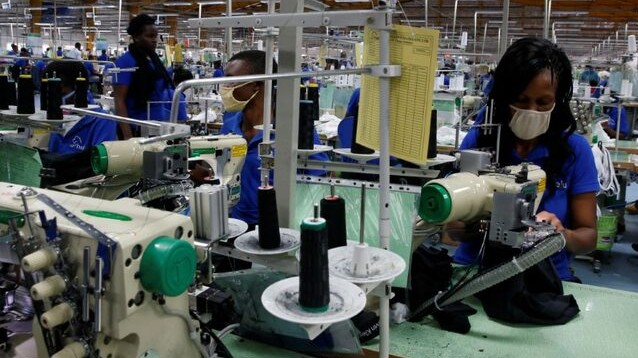Kenya trails Uganda and Tanzania in attracting industrial investment - report

Uganda’s leading yield of 13 per cent indicates a robust appetite for its industrial assets, while Kenya’s comparatively lower rate points to concerns around return on investment, regulatory hurdles, or slower industrial growth.
Kenya is lagging behind its regional peers, Uganda and Tanzania, in attracting industrial investors, according to a report.
Dubbed ‘Africa Industrial Market Dashboard’ by real estate consultancy Knight Frank, the study covers the first six months of the year and reveals that Kenya's average industrial yields stood at 9.5 per cent.
More To Read
- Tanzania dispatches envoy to Brussels to avert Sh23.3 billion EU aid freeze
- Uganda: One dead, several injured in Iganga campaign violence
- European Parliament moves to block Sh23.44 billion aid to Tanzania after post-election violence
- Tanzania dismisses EU sanctions threat over human rights violations
- Uganda stops granting refugee status to nationals from Ethiopia, Somalia and Eritrea
- Tanzania challenges EU debate on Tundu Lissu and post-election crisis
This is compared to Tanzania’s 10 per cent and Uganda’s 13 per cent.
Industrial yields measure the annual rental income as a percentage of a property’s value and serve as a key indicator of investor sentiment.
Higher yields typically reflect stronger return potential and growing demand, signalling optimism among investors about a market’s performance and prospects.
Uganda’s leading yield of 13 per cent indicates a robust appetite for its industrial assets, while Kenya’s comparatively lower rate points to concerns around return on investment, regulatory hurdles, or slower industrial growth.
However, the report maintains a brave face, saying Kenya’s industrial yields remain among the most attractive in the region.
The report also reveals that prime warehouse rents in Kenya have held steady at $6 (Sh775.4) per square meter (psm) per month, supported by the tightening supply of Grade A stock and the strategic repositioning of logistics networks around Nairobi and other key economic corridors.
In Tanzania, rental rates range between US$5 (Sh646) to $6 (Sh775) psm, while Uganda’s range between $3 (Sh388)–$7 (Sh905) psm per month, depending on location and specification.
Notably, the report says sustainability has become a defining feature of new industrial developments in Kenya.
“A notable milestone was achieved by Cold Solutions Kenya, whose temperature-controlled warehouse at Tatu City became the first facility in Africa to attain LEED Gold certification from the US Green Building Council,” Knight Frank said.
“This designation reinforces the trend of occupiers seeking ESG-compliant spaces that offer operational efficiencies and reduced energy consumption.”
It adds that developers are increasingly responding to this shift by incorporating green design principles into both speculative and build-to-suit projects.
Meanwhile, Special Economic Zones (SEZs) and Export Processing Zones (EPZs) continue to drive Kenya’s industrial growth, according to the consultancy.
It says a significant development during the review period was Emirates Logistics’ entry into the Kenyan market, with plans to construct a state-of-the-art logistics hub at Tatu City SEZ.
The facility intends to serve global supply chain clients across Sub-Saharan Africa, reinforcing Kenya’s status as a regional logistics and distribution hub.
Top Stories Today












































